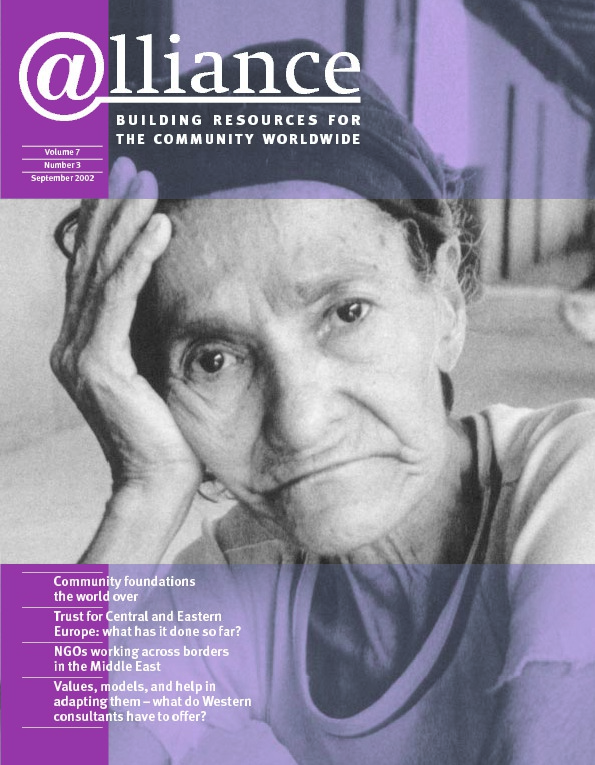In 1998, the Southern African Grantmakers’ Association (SAGA), in conjunction with the Mott, Ford and Kellogg Foundations, initiated a pilot programme in ten different communities to test the viability of the concept of community foundations (CFs) in South Africa. Three and a half years later there are three fully operational community foundations (CFs) and seven others in various stages of development.
The whole process started with a fact-finding mission to the US and UK in 1994 by prominent South African civil society leaders and development practitioners to study the role and impact of CFs in those countries. On the strength of a positive report from this mission, Emmett Carsons and Suzanne Feurt[1] were invited to present papers on the concept of CFs at the SAGA conference in 1996.
A decision to implement the pilot programme was then taken and ten carefully selected communities were invited to participate. Three CFs are now fully operational, with endowments and grant programmes in place, thanks to challenge grants from the Ford and Mott Foundations and local corporate contributions. The remaining seven are less advanced and in different stages of development, with SAGA still providing technical support and guidance to enable them to become fully operational. There are also about seven other CF initiatives operating independently and using SAGA as a resource for information and guidance – an encouraging sign of the model replicating throughout the country. With the pilot programme now drawing to a close at the end of 2003, SAGA will be facilitating a consultative process to explore a set of options for continuing ‘umbrella’ support work to CFs.
Does the model fit the South African context?
In the South African context, the CF concept promotes social action and community interconnectedness in two ways. First, it brings together community leaders from different racial backgrounds to think and plan together the welfare and advancement of their community. Second, it provides a mechanism whereby locally mobilized gifts and assets can be used for the common good. At the heart of the CF concept is a value system that espouses transparency and accountability and recognizes diversity – which should be reflected in the composition of the board of trustees and committees, and in the participation and involvement of all sectors of the community.
Endowment-building is important for sustainability, but very challenging for new CFs. This is particularly so in South Africa, characterized by the paradox of both affluence and extreme poverty coexisting in economically distressed regions. Often, the emphasis on endowment causes neglect of the vital community involvement activities. On the other hand, there is a growing consensus that recognition of traditional values and practices, and revival of traditional resource mobilization strategies, will be a key dimension of civil society and economic development in economically and socially distressed regions throughout Southern Africa
Champions within the community
Seeding the CF concept cannot be done successfully without real involvement from within the community. ‘Champions’ who have ideas, motivation and the energy to create new organizations and mobilize the necessary resources must lead, while the social context provides the material and institutional resources from which they may draw inspiration and physical support. As patron of the Uthungulu Community Foundation, King Goodwill Zwelithini of the Zulu nation has helped to rally people around the foundation, urging traditional leaders to create components funds[2] for their communities within the CF. He has been projecting the CF as strengthening and complementing existing community practices and resources.
Forging collaborative partnerships with public institutions, especially local government, has been pivotal in the legitimization of CFs. There is potential here for joint projects, for instance CFs serving as conduits for government and corporate funding for community development projects, through community/public/private partnerships.
Although the CF model is flexible enough to allow adaptation to the local culture and practices, it is a challenge to incorporate some of what are considered defining characteristics, eg endowment, into a model that is relevant for South Africa.
1 Emmett Carsons is President of the Minneapolis Community Foundation; Suzanne Feurt was with the C S Mott Foundation and is now with the Council on Foundations.
2 ‘Components fund’ is a technical term meaning affiliated or nominated funds
Max Legodi is Programme Manager – Community Foundations at the Southern African Grantmakers’ Association. He can be contacted at comfound@saga.wn.apc.org
For more information about SAGA, see http://www.donors.co.za





Comments (0)